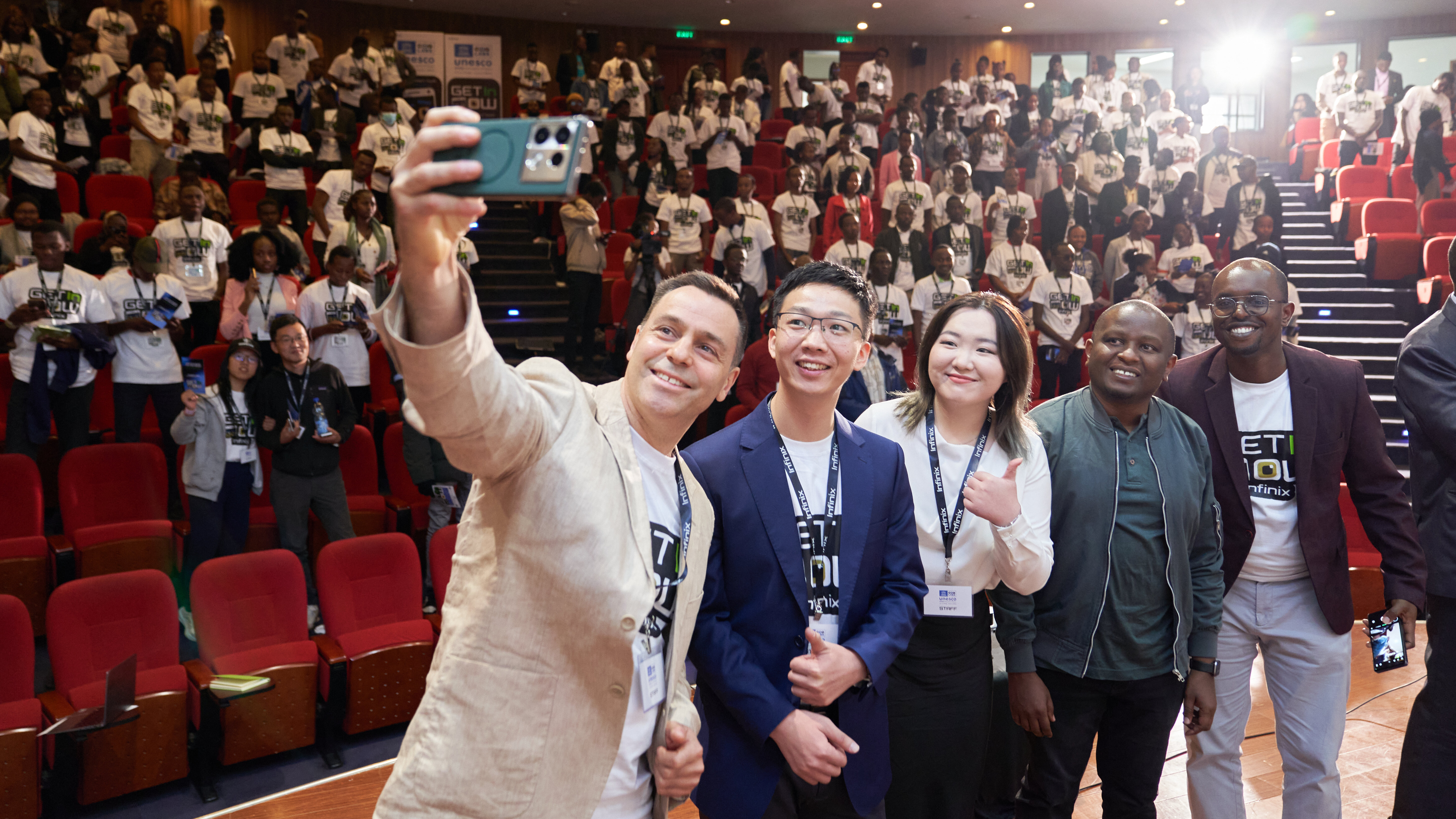Infinix, Google and Unesco empower 300 students at Nairobi's largest CogLabs AI event

Participants during the CogLabs AI event in Nairobi. Photo/Iman Masud
Nairobi, Kenya
Infinix, in collaboration with Google, Unesco, and the University of Nairobi (UoN), recently hosted the largest CogLabs event in Nairobi.
This landmark event, attended by over 300 students, represents a significant milestone in advancing artificial intelligence (AI) and robotics education across Africa.
The CogLabs project, a pioneering initiative launched by Infinix, is designed to provide students with hands-on experience in robotics, machine learning, and AI.
Michael Zeng, Brand Manager of Infinix Kenya, expressed his pride in the collaboration, stating, "It is a true honour for Infinix to collaborate with Unesco and Google in globally promoting the CogLabs project. This project is designed to build capacity in crucial domains such as robotics, machine learning, and AI, with a focus on education equality, to transform knowledge into resilient ownership and foster sustainable development."
The event underscored the importance of breaking down barriers in STEM (Science, Technology, Engineering, and Mathematics) education, particularly challenging the perception that it is difficult or restricted to certain genders.
The director of corporate affairs of University of Nairobi, John Orandi, emphasised the institution’s commitment to nurturing talent and producing graduates who are not only job-ready but also equipped with practical skills.
"Our mission is to educate students who are not just job seekers, but innovators equipped with the skills needed to thrive in today's dynamic job market," Mr Orandi said.
One of the event's highlights was the introduction of cost-effective approaches to AI and robotics education.
Joan Nadal, Master Trainer at Unesco’s STEM Education program, discussed how the initiative addresses the high cost of educational robots.
"Education robots can be expensive, often costing around $400. However, with CogLabs, students can create their own robots for just $30-40 using an old phone and a power bank," Nadal explained.
He also noted that the project taps into Africa’s vast community of smartphone users, giving new life to old devices that would otherwise be discarded.
During the CogLabs workshop, students engaged in practical activities, such as building robots from 3D-printed parts and repurposing used Infinix smartphones. These robots were programmed to perform tasks such as recognizing objects and responding to commands, providing participants with a deep understanding of coding, machine learning, and AI recognition processes.
Google’s involvement in the CogLabs project was pivotal, particularly in the development of the CogLabs mobile application. John Kimani, Head of Developer Relations for Sub-Saharan Africa at Google, highlighted the company's dedication to promoting digital literacy. "Google's emphasis on making learning accessible to all aligns perfectly with the CogLabs mission. This mobile application will empower everyone to explore the world of machine learning and programming, ensuring equal opportunities for all to create their own robotic wonders," Mr Kimani said.
Looking ahead, Infinix plans to expand the CogLabs initiative across Africa, offering workshops in various countries to inspire and equip students with the skills needed for the digital age.
"We firmly believe that every young mind possesses unlimited potential, and advanced technologies like AI will open doors to a brighter future for all," Zeng emphasised.
Sheezan Willis Orwa, a third-year student pursuing his Bachelors in Medicine at UoN, shared his reflections on the workshop. He emphasised the importance of acquiring global competencies in today’s competitive landscape.
"From this event, I learned that to be the best and stay ahead, one has to elevate their mindset to the global field and acquire global skills. There’s a breakthrough in artificial intelligence that is providing solutions in fields like health, medicine, and business," Mr Orwa said.
The success of the Nairobi CogLabs event highlights the transformative potential of AI and robotics education in Africa, setting the stage for future initiatives that will continue to empower the continent's youth with the tools to lead in the global digital economy.

Be the First to Comment